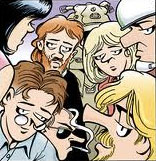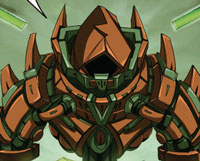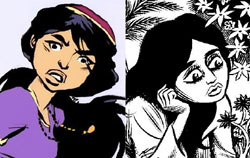 This week, Tim talks to three guys who participated in San Diego Comicon earlier this month, to see what their objectives were for being there, how it went, and their advice to SDCC newbies.
This week, Tim talks to three guys who participated in San Diego Comicon earlier this month, to see what their objectives were for being there, how it went, and their advice to SDCC newbies.
Dale Wilson, who wrote up his experience at BuyIndieComics.com, on why he left “unfulfilled” in some ways, but enjoyed it in other ways;
Justin Hall, who we last talked to in March of last year, on promoting his Fantagraphics book “No Straight Lines” and Prism Comics, as well as the sideline indie comics gathering Trickster; and
Robert Roach, a veteran of San Diego tabling, on his Japanese influences, networking, and more.
Podcast: Play in new window | Download
Subscribe: | More
 Back in April, Tim talked to Brian Mitchell about his matchbook-sized comics. Recently, he sent us some samples, so Tim and Mulele have read through them and are here with their thoughts.
Back in April, Tim talked to Brian Mitchell about his matchbook-sized comics. Recently, he sent us some samples, so Tim and Mulele have read through them and are here with their thoughts.





 This week, Tim talks to three guys who participated in San Diego Comicon earlier this month, to see what their objectives were for being there, how it went, and their advice to SDCC newbies.
This week, Tim talks to three guys who participated in San Diego Comicon earlier this month, to see what their objectives were for being there, how it went, and their advice to SDCC newbies. This week Tim and Mulele puzzle over “
This week Tim and Mulele puzzle over “
